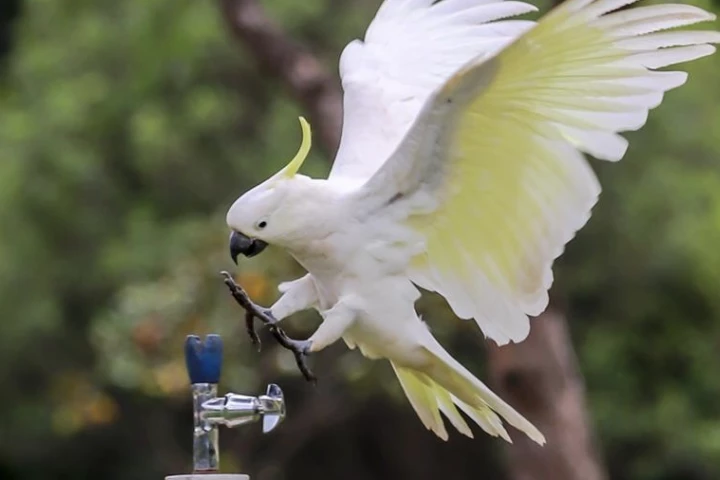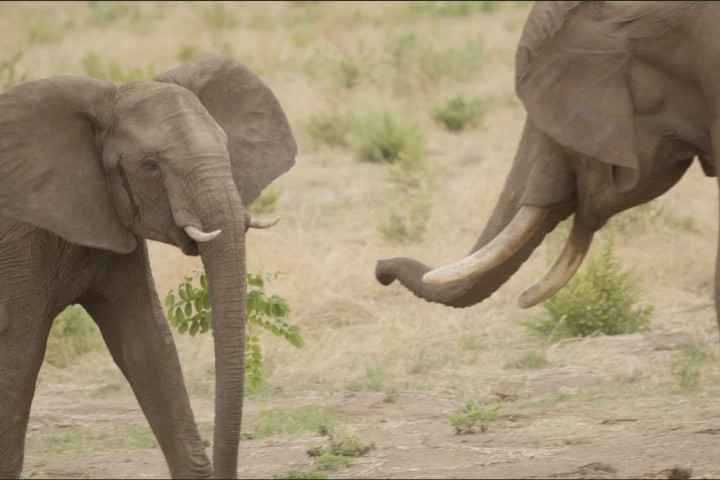University of Vienna
-
For the first time, scientists have unraveled how high levels of fructose flip a genetic switch that primes your immune system to overreact to things it would normally ignore. In this "trigger happy" state, the immune system becomes the enemy within.
-
In an impressive feat of urban adaptation, sulphur-crested cockatoos have worked out how to use their feet and their large bodies to twist the taps of drinking fountains. And much like another of their moves, they're learning to do this en masse.
-
There are so many ways to say hello. People wave, bow, shake hands, hug, kiss, fist bump, say “hi” or any combo. But there’s one greeting from nature that we sure hope doesn’t catch on, as a new study finds that elephants often greet chums with a dump.
-
Scientists have “painted” with DNA, creating 16 million colors to accurately reproduce digital images with 24-bit color depth. The resulting images are incredible, and represent not just a new art form but potential advances for storing data on DNA.
-
Reading someone’s facial expressions or body posture is important for understanding their personality, emotions, motivations, or intent. But can dogs draw information from faces and bodies like we do? A new study has provided the answer.
-
For some people, wandering around a gallery to ponder over a Picasso, revel in a Rembrandt, or find meaning in a Magritte can boost their mood and improve their well-being. But is the same true for viewing art online? New research says that it is.
-
Mozart’s music has been credited with having many positive effects, few of which have been backed by science. A new study has finally answered the question of whether the "Mozart effect," as it relates to epilepsy, is a real thing.
-
A new study shows that lettuce readily takes up particles produced from rubber car tires as they roll along our roadways. The research is part of a growing body of evidence that materials we use everyday are flowing back into our food supply.
-
Engineers at the University of Vienna have developed a new composite material that makes an efficient filter for removing organic pollutants from water. The system uses super-porous “nano-sponges” embedded on a sheet of graphene.
-
Perhaps surprisingly, gravity is the weakest of the four fundamental forces and the hardest to measure here on Earth. Now, physicists in Austria have made the smallest measurement of gravity so far, equivalent to the gravitational pull of a ladybug.
-
Although the great white shark is one of the ocean's top predators, it's still a vulnerable species. Now, scientists have discovered what they say is a prehistoric nursery site for the sharks, and it could have implications for protecting them today.
-
One argued silver lining of rising atmospheric carbon dioxide levels is that plants will be better off. But a new study has found that the more extreme heat and drought brought on by climate change would cancel out most of the benefits for trees.
Load More











